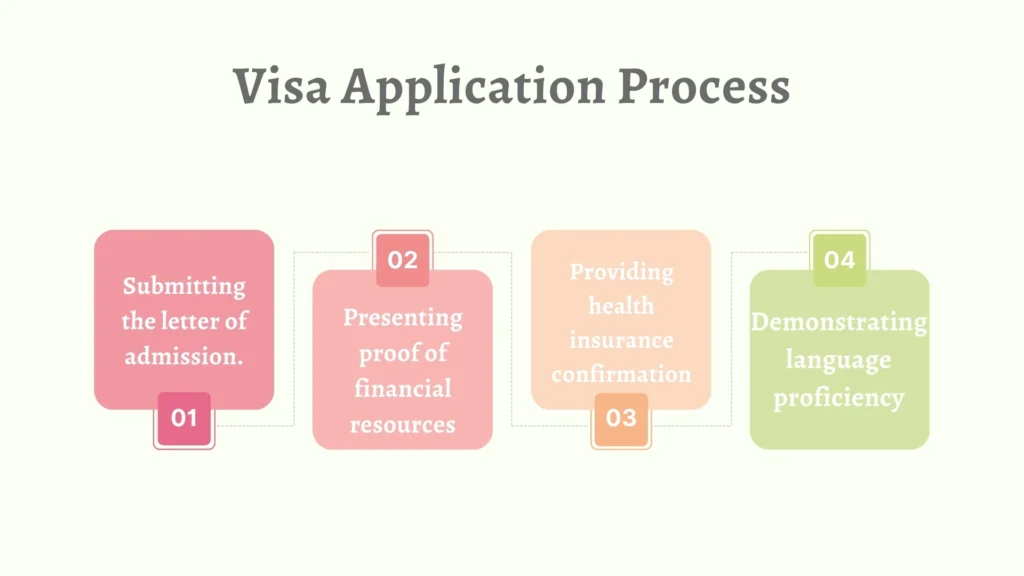Germany has gained the most respectable reputation worldwide in terms of good academics and well-equipped infrastructure for education. As a result, nowadays, students from other countries are focusing more on Germany for their bachelor’s degrees. There are many more reasons to pursue a bachelor’s in Germany. First, it provides the best quality education and second, diversified culture due to international participation. However, this also creates a challenge, as admission requirements for Bachelors in Germany vary according to the individual university policies. Below, we provide you with a broad overview of the requirements for a Bachelor’s degree in Germany to enable students seeking to pursue one.
1. General University Entrance Qualification
To join any German university international students must have an equivalent qualification to the German Abitur that leads to the universities. Such a qualification is known as Hochschulzugangsberechtigung (HZB). According to the applicant’s home country, it may vary:
- For Indian Students: For students from India, passing the class 12 with subjects and minimum marks may also fulfill the HZB. Again, requirements may vary to require additional qualifications or an entrance test for universities or courses.
- Other International Students: Normally, an international high school diploma or pre-university year is acceptable.
Note: Students with qualifications that do not meet the HZB will have to enroll in a Studienkolleg (foundation course) and pass the Feststellungsprüfung (university qualification exam).
2. Language Proficiency Requirements
Language proficiency is one of the primary requirements for accessing a bachelor’s degree in Germany. Most undergraduate programs offered in colleges and universities are in the German language; therefore, students have to demonstrate their proficiency in it.
German Language Proficiency
Language Tests are part of the admission requirements for Bachelors in Germany. If the course is given in German, foreign applicants may require one of the following as proof of their level of proficiency in German:
- TestDaF (Test Deutsch als Fremdsprache): TDN 4 in all areas
- DSH (Deutsche Sprachprüfung für den Hochschulzugang): DSH-2 or DSH-3
- Goethe-Zertifikat: At least C1
- telc Deutsch C1 Hochschule: Accepted by most universities.
Tip: Begin language preparation at a reasonably early stage since normally study is needed for such achievement of C1 Level Proficiency.
English Language Proficiency:
Certification for all candidates enrolled for programs conducted entirely in English
IELTS (Academic Version) – Score of 6.5 or above.
TOEFL iBT score – Minimum score 90 – 100.
CAE (Cambridge Certificate of Advanced English) and its variants – Grade B and above.
3. Academic Transcripts and Records:
The applicant is also required to provide authenticated copies of the academic transcripts which contain.
- Marks statement details Class 10 and/or the International equivalent of Class 12.
- Evidence of subjects studied, grades obtained together with overall academic performance record.
- Translations into German/English, certified by competent authorities, if the records are in any other languages.
Note: Universities in general require applicants to demonstrate certain subject backgrounds relevant to the intended field of study. Thus, engineering programs, usually, require a strong basic training in mathematics and physics.
4. Standardized Tests, if required
The above, while not obligatory for every course, the colleges require standardized test scores consisting of:
- SAT or ACT – Particularly for technical and business fields
- APS Certificate-Academic Evaluation Centre – From 2023 onwards, this is mandatory; This is a certification report for the applicant since this verification report confirms whether the documents qualify according to German academic standards and are legitimate.
5. Statement of Purpose (SOP) or Motivation Letter
Many German universities ask for a Statement of Purpose (or Motivation letter as part of the application process. This is the applicants’ chance to tell more about:
- Academic background and achievements
- Why a given program and university
- Career plans, and how the degree will contribute to achieving them
- Personal interests and skills that may be relevant to the field of study
How to Write a Strong SOP:
- Be clear and concise.
- Highlight achievements that are pertinent to the theme of the program.
- Demonstrate an interest in the subject and awareness about the university.
6. Letters of Recommendation
Some universities require one or more letters of recommendation from teachers or school counselors. These letters should:
- Highlight the applicant’s academic potential and character traits.
- Give insight into suitability for the preferred program.
- Be printed on the headed paper and signed by the recommending authority.
7. CV/Resume
An academic career or resume demonstrating the academic track, outside activities and achievements pursued by an applicant amongst others, is required. This should comprise of a curriculum vitae, meaning educational background, related projects, internships, language proficiency and certifications acquired, and honors received.
8. Proof of Financial Resources (Finanzierungsnachweis)
One also needs proof of financial resources or Finanzierungsnachweis when applying. For international applicants, there should be proof that they are able to provide for the living expenses of their time in Germany during their study. Financial Proof is the important part of the Admission requirements for Bachelors in Germany.
- A blocked bank account (Sperrkonto) with at least €11,208 for one academic year (2024 estimate).
- An award letter from the scholarship indicating a statement of financial support.
- Documentation of proof of income or financial guarantee by a sponsor if applicable.
Why This Matters:
The German student visa is issued only to those students who can prove they are financially stable and have enough money to sustain themselves while in Germany.
9. Health Insurance
All students in Germany must have health insurance. Before entering into their studies, applicants must provide the following documents to the university:
- Proof of public health insurance enrollment or current, valid private insurance plan.
- Confirmation letter of enrollment by a German health insurance provider in case of students from outside the EU.
EU citizens do not need a Confirmation letter; they can use their European Health Insurance Card (EHIC).
10. Application Portal and Process
Application to German universities can be made through:
- Uni-Assist: The Uni-Assist Service allows you to submit applications to many German universities.
- Direct Applications: Some universities and colleges accept direct applications for their courses directly through their websites.
Application Checklist:
- Translated and certified application documents, if required
- Application deadlines: usually between 15 May and 31 July for the winter semester, and between 15 November and 15 January for the summer semester)
- Additional requirements of the selected university or program
11. Entrance Examinations and Aptitude Tests
Some courses have entrance exams or aptitude tests, especially for artistic fields such as art, design, or music. Some of the examples include:
- Artistic Portfolio: For art and design courses, it is a portfolio of creative work.
- Entrance Exam for Specific Fields: Some science or engineering courses require subject-specific tests.
Preparation Tip: Confirm with the university if an entrance exam is required and prepare for it.
12. Visa Application Process

A valid visa is among the admission requirements for bachelors in Germany Once admitted, non-EU students have to apply for a student visa. Procedures entail:
- Offer Letter from University proof
- Proof of financial resources.
- Health insurance proof.
- Language competency evidence, in case the course demands;
Note: Processing of Visa applications might take a few weeks. It’s very important that one makes all the necessary arrangements early enough.
13. Recognition of Previous Learning
There is the possibility that some Higher Education institutions might demand one to have foreign qualifications in education recognized. Recognition can be done through:
- ZAB (Central Office for Foreign Education): Verifies if it’s valid under the German criteria
- APS Certificate: Necessary in India, however not for all.
14. Scholarships
Germany offers numerous scholarships for students coming from different parts of the world and can be an important source of funding. Some scholarships are:
- DAAD: Awards scholarships with tuition fees and cost of living covered under it
- Deutschlandstipendium: A merit scholarship, which supports talented students.
- University-Specific Scholarships: Many universities have their own scholarships for international students.
Tip: Start searching for scholarships early so that the eligibility and application deadlines can be met.
15. Deadlines and Important Dates
Meeting deadlines is the key to a successful application. General timelines are as follows:
- Winter Semester (October start): Applications open in May and close in July.
- Summer Semester (April start): Applications open in November and close in January.
Conclusion
It is a long process, requiring great preparation, and understanding of the different university requirements in Germany to apply for a bachelor’s degree. It can be quite detailed from proving academic qualifications to language proficiency, submitting financial proof and health insurance, therefore, very important that all these documents will be properly complete and well-organised, and submitted before the deadline to pass the application process. Ensure you meet the admission requirements for bachelors in Germany. With the right planning and eye for detail, finding a German university will expose one to an incredibly enriching educational experience and open up loads of academic and career development opportunities.
Related Post
Requirements for masters in Germany
Top MBA colleges in Germany
Masters in digital marketing Germany
Digital Marketing Courses In Germany













